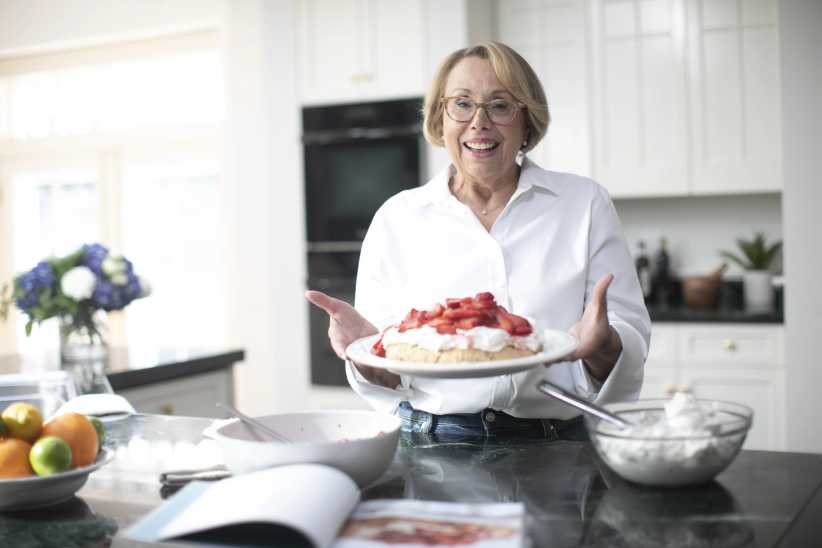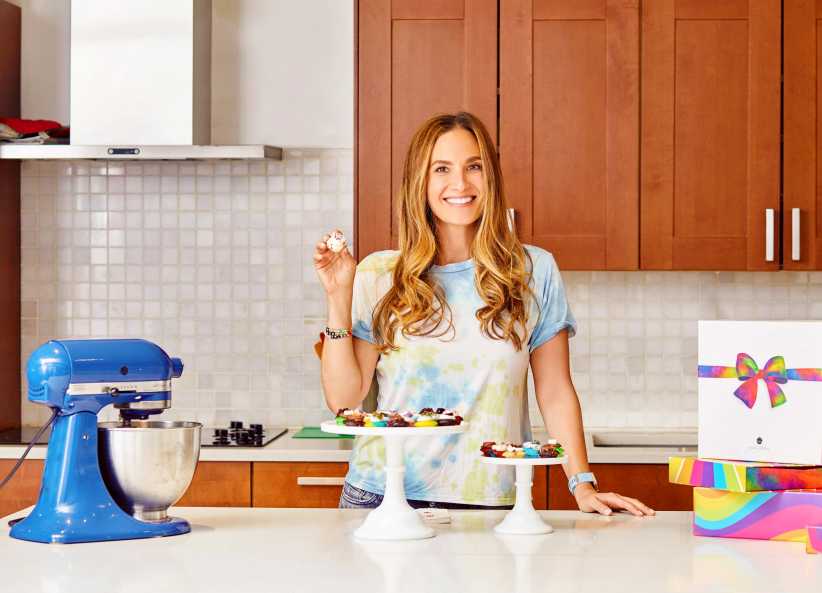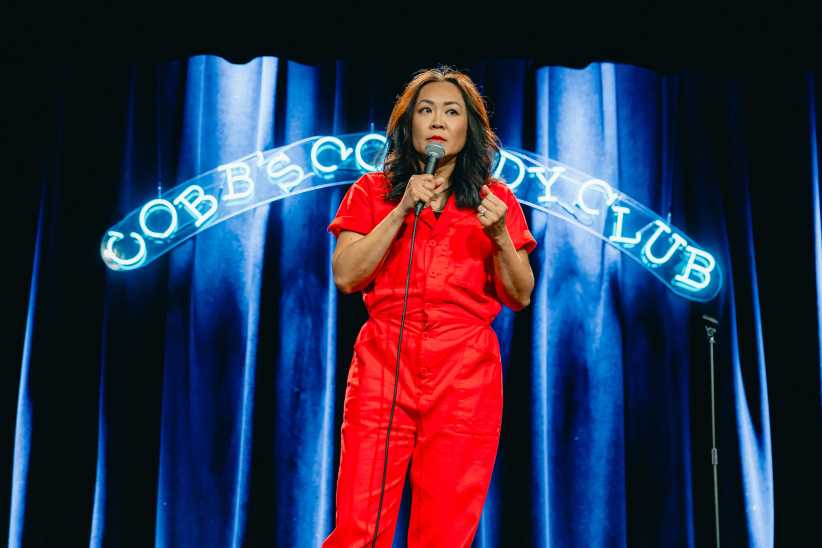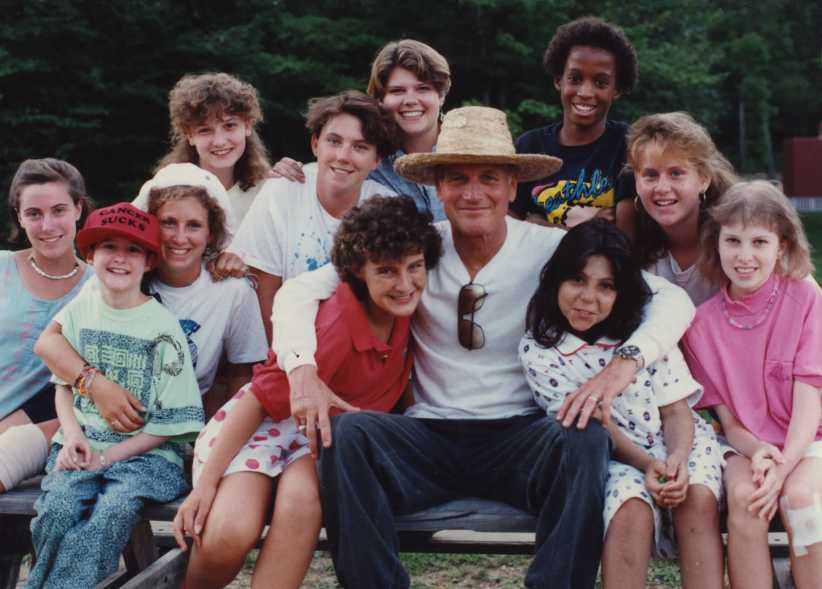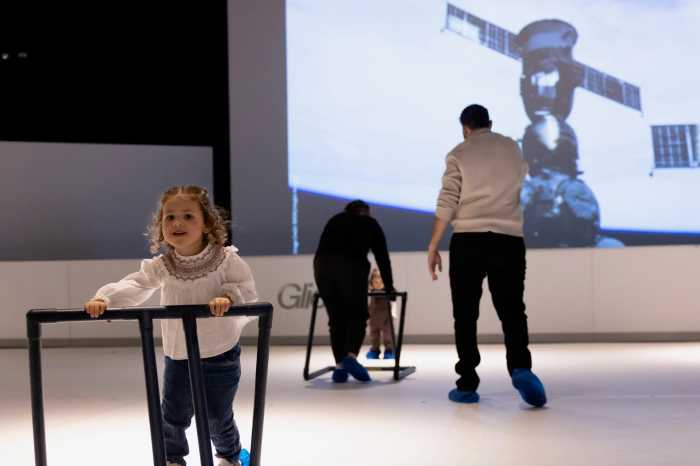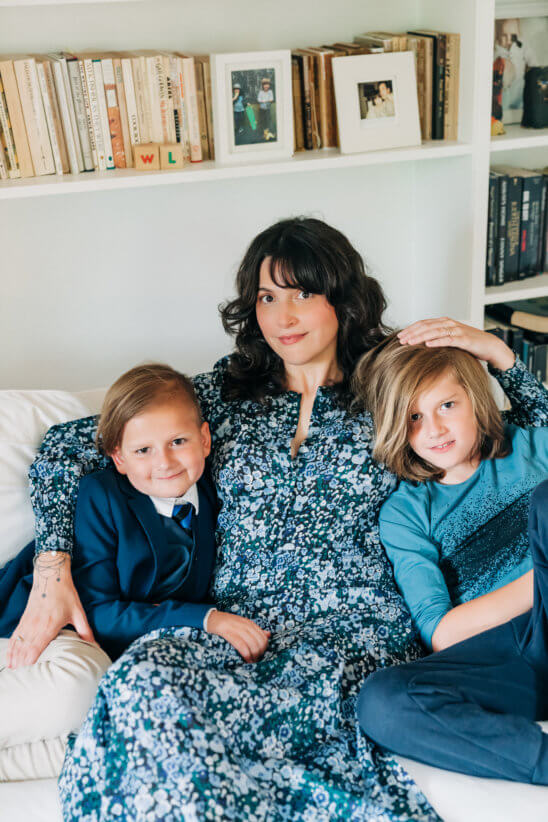
October Cover Alexa Wilding: Writer, Musician, Twin Mama On Being a Cancer Mom and a Cancer Survivor
As I sit here and write this story, it’s been a week since my conversation with Alexa Wilding (mom of 9-year-old twins Lou and West) and the cancer mom you probably know from the raw and honest writing she shares on her Instagram feed. It may have been a week, but I have not stopped thinking about our conversation for one second since.
We spoke for over an hour and a half, almost double the amount of time my interviews usually take, and we could have easily gone another hour. Alexa’s story is wild (no pun intended), painful, magical, horrible, and, at times, hard to believe. And although her story is riveting—after seeing her son Lou through choroid plexus carcinoma (twice!) a rare pediatric brain cancer for which West is not at risk, she herself gets diagnosed with breast cancer—it’s her take on the events and how she got through it all that really mesmerized me. She spoke about nature as medicine, about being present through the good and the bad, and about the many identities we as moms have that we maybe don’t allow ourselves to explore. Even if you don’t have a sick child, and even if you are not sick yourself, this interview will push your mind to see life through a fresh pair of eyes. Or at the very least, will help you see yourself anew—Alexa says we are all prisms, shifting and growing, our many chards of glass catching rays of light as we turn. I couldn’t think of a better metaphor.
CP: Can you tell me a little bit about yourself?
AW: I am a writer, a singer/songwriter, a twin mother, a cancer mom and now, a cancer survivor. It’s a very long byline, but they all are starting to inform each other. I was mostly born and raised in New York City, downtown to two very art-y parents so I had a really fun upbringing. I left the city about 4 years ago to move upstate. I had gone to Bard College so I knew it was beautiful here, but leaving the city was such a big deal. Now that we’re here I can’t imagine being anywhere else. When you’re someone who doesn’t really have a connection to nature as a city kid it can really win you over and provide a lot of medicine, which I’ve needed these last few years. My husband works at Bard College’s contemporary art museum, and it’s been fun visiting him where I went to school, and really fun for my kids when shows are going up to run wild in the galleries. We’ve made a really lovely life for ourselves up here. The Hudson Valley completely exploded during the pandemic which was interesting, but I think there’s a lot of positives in that we saw a lot of families looking for the same thing. To feel more connected. And when you wake up and see the mountains you can’t help but just be turned into a Buddhist, a crazy New Age lady. I wake up, I have my coffee, I stand on my porch and say, “Thank you mountains, thank you for watching over me and my family, thank you for always being there.” It’s amazing what the move from city to country can do.
CP: That’s amazing.
AW: Yeah and it can really get you out of yourself. And for me getting out of myself has meant, I’ve had to both learn how to be super present these last few years as a mother, an artist, a wife and a daughter, but I’ve also been forced to hand a lot over. When you have a child with cancer in remission, when you yourself then become a cancer survivor, it’s like Buddhism boot camp that you didn’t sign up for. Nature has been the medicine for me, just seeing things on a daily basis, like the mountains, my daily hikes, the river, knowing that things exist that are greater than me and my story make me feel much more secure in the unknown. That said, I do miss the city a lot (laughs).
CP: It’s funny how that works right?
AW: Yeah, and whenever I go in I’m seduced again. I’m like, black boots on pavement, I’ve got my coat, I’ve got my bag, I’m doing things, I’m going to pop into the Met, I’m going to go to the bookstore. And then I get back on the train and I’m like (takes a deep breath) I’m going home. I can breathe again. Leaving the city was a big part of our story and it was difficult because when we first got up here we were only here for a few months and then my son had a cancer recurrence. So we had worked so hard to make this big move and it was almost like the city was like, mmm we still have some work to do with you guys. So that was tough and I ended up commuting back and forth to be with both of my kids during that time.
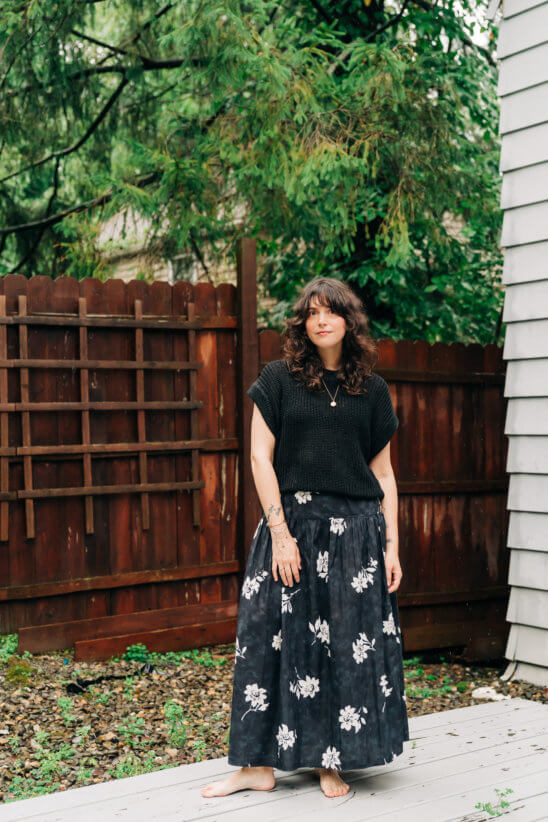
CP: That’s so tough. It’s funny because when I asked you to tell me a little bit about yourself, you sort of hit on exactly one of the two main themes I want to talk to you about today: the concept of identity, changing identities. The first big change was going from maiden to mother. What was that like for you?
AW: It was a brutal process as it is for most mothers, and we don’t talk about it enough because we’re supposed to be so blessed and happy with our baby, or babies in my case. I think we’re talking more about postpartum depression and that transition, but it’s still a fraught subject. For me it was a very wild time. I had spent over 10 years as a singer/songwriter, I was named one to watch in all the magazines, I got to tour with some amazing bands and I was so committed to this idea. I was going to be the next Stevie Nicks. I had all my eggs in that basket and I loved every second of it. I was a part of the Lower East Side music scene, I got to work with some of my Indie Rock heroes. It was a very privileged, very fun time. And then the music industry itself was having an identity crisis and my rising coincided with the industry collapsing. One month I was one to watch, and then the next month my record deal fell through, no one bought the self-produced record, the band fell apart, and I was pregnant.
CP: What year was this?
AW: This was 2012. I knew I wanted to be a mother, but I didn’t know how it was going to work and when I got pregnant with my first pregnancy which ended in a miscarriage I was almost relieved to have an out. I felt very guilty about that. It was really interesting that that pregnancy ended—and again, miscarriage is another thing we don’t talk enough about, until you share you had one then five other women will be like, “Me too.” And that pregnancy that didn’t work out actually gave me a second to think about do I really want to do this and why am I doing this. And it gave us a few months, my husband and I, to really think on that. I always tell people, there’s never a right time to have children, it’s always going to be fraught, it’s always going to be complicated. But I was ready, I was ready to take a beat from this identity that was suddenly feeling very punishing and wasn’t nurturing me anymore. Having that miscarriage gave me a second to really think and decide that yes, I really do want to be a mother. I was very lucky I got pregnant soon after with two babies.
CP: Was that a surprise?
AW: Total surprise. It was not IVF, identical twins do not run in my family. It was such a tender thing because I remember thinking how nice of God, or whoever is up there, how nice of them to give me two babies when I lost one. So I had these two little babies and I remember feeling a lot of guilt because I grew up hearing my mom’s story of when I was born: she felt love like she never felt, she looked in my eyes, blah blah blah. These two little creatures came out of me and my first thought, I mean, of course I loved them, but my first thought was Oh my God, how am I going to be enough for two babies? I’m lying here, I can’t even hold them, they have to put me back together. And that first year with them I didn’t think I needed any help. That was a very brutal year. When I see new mothers I always say to them, “You’re doing a great job,” because nobody knows unless they’ve been there how much it takes to get out for that walk, to get to that playground.
CP: The prep is longer than the outing.
AW: Yeah! So the next change was around seven or eight months, my son Lou stopped nursing. We couldn’t figure out what was going on, because West had a healthy appetite, and the months went on and he was declining. We couldn’t figure out what was going on, it was a horrible time. My husband was very busy at his job, I was alone. We did have a part-time caregiver at that point because I just really needed the help. That last month leading up to my boys’ first birthday still comes up in my memory as the most difficult initiation of my life because I knew something was wrong. But nobody could figure it out. We went through one pediatrician after the next, and that last day, my friend Ben Lee, the Australian songwriter was in town and he asked me to open a show for him, and I was like, “Yes! I’m back!”. And I was like what kind of person am I that I just said yes to a show when I have a vomiting, listless baby at home? But I had to do this show. That morning I put my guitar and a bag with a dress by the door, and I strapped Lou to my chest to go see one last pediatrician. I really thought I was coming back for that guitar and I really thought I was playing that show. We ran over to Mount Sinai. While we were waiting for the subway we ran into a photographer friend of mine, Jonathan Waiter, who took the last pictures of me before I became a mother. I saw him on the platform and he was bald and wearing a mask. At the time I didn’t know what cancer was, and he looked at me and he said, “Love”. I didn’t know if he was calling me love or what. It was this very mystical thing. I said, “I have to go, my baby is sick” and he said, “Oh I shouldn’t be around your baby if your baby’s sick,” and he ran off. I got on the train and I checked to make sure I hadn’t seen a ghost. It was so weird.
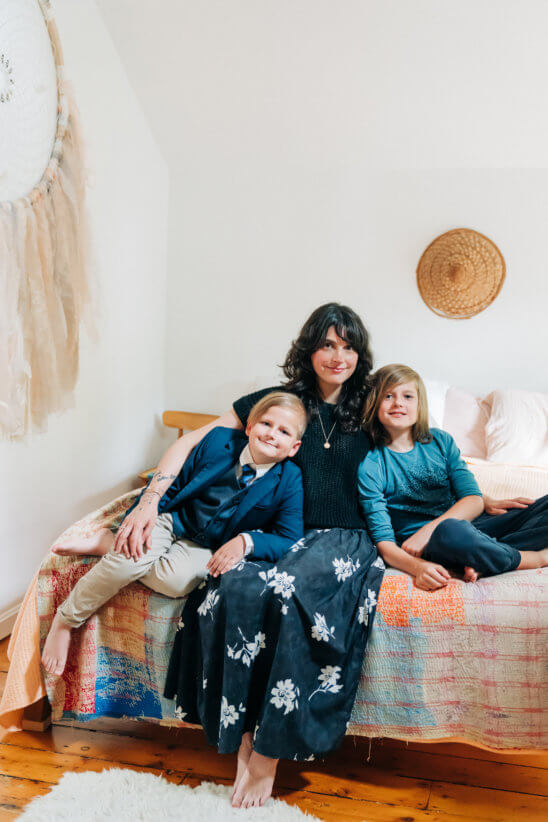
CP: I have chills!
AW: I know, I know. I was like what the hell, why is Jonathan bald? I didn’t put it together. We get to Mount Sinai, did all these tests, and I had that feeling that a bomb was about to go off. I’m holding this beautiful baby that I don’t even know and I was maybe about to lose him. Meredith Grossman at Mount Sinai was our new pediatrician and she thought to measure his head and she figured it out. She said his head was swollen, something was going on. I remember standing on the corner of 98th and Madison, she told me I needed to meet her in the ER, and it was out of a dream when you can’t move your feet. I knew the minute we walked through those doors we’d be passing into a new world. And I think about that corner so much. I unfortunately had to revisit it so many times, and for myself this past year which has been bonkers. We walked through those doors and I handed my child over. And the irony is, I became a mother when I released my child into the arms of someone else. That was a really profound moment for me. As mothers it’s the most unnatural thing to have to acknowledge that you alone can’t give your child what they need.
CP: And that can be interpreted in such a minute way or in such a cosmically huge way like you’re talking about. That is a metaphor for motherhood if I’ve ever heard one. You may have given them life but you alone in a vacuum can’t do it.
AW: No, and that was a big awakening for me. I realized my children, I brought them here but they are on their own paths. Being a mother is actually being of service and bringing them along on those paths, wherever those paths are going to lead. And sometimes you get one that’s really complicated. And I did. That was my initiation. Of course I remember so much shame looking at this nurse and being like, “Are we going home tonight? I have a show.” It’s taken me all these years, my kids are nine now, to forgive myself for that and to see that I was asking for that show because it’s what I needed.
CP: But first of all, you didn’t know. Number two, I think you were asking almost a deeper question. It was, has my life just changed or has it not just changed?
AW: Exactly. It would be many years before I claimed the guitar and the dress at the door. Thus started this incredible year of saving Lou. It was really bad that first year, and complicated with two babies, one is healthy and at home, the other has a rare form of brain cancer and a tumor. So we saw Lou through this horrific time, he had a very complicated tumor, it was very complicated to remove. When I saw the looks on the team’s face I didn’t realize how close I was to losing my child. Next thing I know I’m Cancer Mom.
CP: Ok so let’s talk about that. You barely have a chance to grapple with the new identity of Mother, and now you’re being forced into this identity Cancer Mom. Can you talk to me about the push and pull between regular mom and Cancer Mom? Because you actually do have two children—you’re Regular Mom to one kid, and you’re Cancer Mom to another kid.
AW: Lou had to do 6 months of high dose chemo, and you basically live in the hospital when they’re that young because it’s too dangerous. I went to a girls’ boarding school and there were echoes of that because it was mostly moms and we were all living on the hall together. We’d have cocktail hour at 6pm, with hummus and pretzels and Cokes. It’s funny that I get nostalgic for that time because it was awful, but it was wonderful to have mirrors like that of all these mothers. We were all struggling to take care of our children through every mother’s absolute worst nightmare, trying to take care of ourselves. I will never forget those first mothers I met because we were all trying to survive and when you become a cancer mom you are immediately martyred. You’re immediately martyred because you are seen as the selfless caregiver who always has her fight face forward, who gracefully accepts the GoFundMe contributions, who gracefully accepts the visits from the social workers and all the different people who come in. You become this hostess with the mostess of your hospital room. It was so funny because here I was in the hospital room decorating it with sheepskins and baskets, trying to make it look like a Domino spread. All of us had a secret life. We had things we were doing to stay alive. For me it was writing. My dear friend Molly is a big part of my story. She was a guardian angel and said, “You need to write and send me what you write.” So that was my secret life and I was writing about some really private things, things that I was doing to survive. There were moms who were shoplifting, there were moms with addiction issues, there was the dad I always talk about, the only dad on the hall, whose wife “couldn’t handle it” and we were fascinated by her. Like, who is this mom who doesn’t get to be here? I say all that just to paint a picture. But the push and pull can really be seen in two ways. I still have dreams about taking breaks from the hospital room and wandering those streets to get a coffee or being really bad and getting in a cab to go down to Strand.
CP: “being really bad” (gestures air quotes)
AW: Right? Or can I go take myself for a glass of wine? Is that ok? So there’s that push pull of taking care of my child and then I really want to go buy a book of poetry, I really want to go have a glass of rosé, I really want to go to that cafe on the corner with the really cute barista because I miss my husband and it’s complicated. But the push pull can really be seen that first Halloween. There are two kids. West is invited to a Halloween party in our building. There’s a Halloween parade at the hospital, which we can’t be a part of because Lou has no immune system, so we can watch it from the room. In my mind I thought they all needed costumes. I find myself running out to Cheap Jack’s in the Garment District, got Lou a Superman costume and got West a boxing costume. I just remember standing there with one bag for Lou and one bag for West. First of all, the absurdity that I thought I had to pull off Halloween when my child is throwing up in buckets, but I didn’t know where to go first. And to this day I don’t know where I went first. But I have pictures of myself in both locations.
CP: I want to say you don’t remember because it almost doesn’t matter. That choice may have seemed pivotal in that moment, but ultimately you couldn’t be in two places at once and yet you ended up fulfilling both duties. You were there for both of them.
AW: Absolutely. And just like I had to hand Lou over on that first day, I learned finally how to bring the support in. We had my mom live in the apartment for a while, we raised money so we could have a full-time caregiver to help at home with West because I was going back and forth. I remember those nights being with West who must have been so confused, he was two. I would put him to sleep in his crib and go back to my bed. In the middle of the night I would work my way to his room, I’d sleep on the sofa because it felt a little closer. And by the end of the night I would be on the floor by his crib just wanting to make sure he knew I was there. It’s a heartbreaking push pull for twins. There was another twin mom at the hospital, Maria, who became my best friend and I had Molly. It was wonderful to have that support because the push pull is just a nightmare. They really got me through it. And by the end of Lou’s first treatment I had applied to an MFA program in writing, gotten in, and made and recorded my third album. I wasn’t trying to win the Supermom Award, it’s just that I had to do those things at that time to get through it. Now if we push forward to Lou’s recurrence four years later, I didn’t understand why I wasn’t writing my book and making records, but I was in a completely different place. It’s interesting what you need at different times to get through what life throws at you.
CP: So you went from Singer/Songwriter to Mom to Cancer Mom and now you’re morphing into this Writer identity it sounds like.
AW: Yeah and survivor. People start looking to you for wisdom. I was happy to share our story but I wasn’t really there yet. I think it was Cheryl Strayed who had that famous quote, “You can’t write from the wound, you have to write from the scar.” And I was very much in the wound, but I was trying. It took me a while to understand that if you’ve been through something extraordinary you can actually be of service, but you also have to be ready to be of service.
CP: But that goes back to your point of becoming a martyr. I think Cancer Mom is the type of identity that overshadows all the other identities and so no one can see past that and people don’t know what to do with the other parts of you.
AW: And if they’re shining really bright it’s really confusing. I’m sure there’s a lot of moms that can relate to this, but there’s always that mom that doesn’t like you on the playground. We’ve all experienced the mom that we just can’t connect with. There was a type of mom in the hospital that I definitely annoyed. It was the one that was really attached to the dark place and couldn’t get dressed in the morning and couldn’t get out of bed and couldn’t find herself outside of this new identity that was forced on her. I get it. I would wake up every morning at the hospital, put on a nice dress, put on some lipstick, that was my way of taking care of myself. But I’m sure she would see me and be like, What’s her problem? She thinks she’s so great in her dresses and her lipstick and her smiles. But that was just how I was going through it. I still have trouble sometimes with parents who can’t fathom how you’re showing up when you’ve been through maybe more than they’ve been through. It can sometimes make them feel less than and that’s a really awful place.
CP: How we perform as mothers is the most vulnerable thing and so when that is threatened we are sort of pitted against each other even when we shouldn’t be. You said you used your appearance as your coping mechanism, almost like dress for the day you want to have. But that’s not everyone’s coping mechanism so instead of just understanding that there’s a difference there, some people become so worried about their own performance as a mother.
AW: Absolutely, but I think those people that we rub the wrong way, or who rub us the wrong way, they’re our greatest teachers. The mom who couldn’t get dressed in the morning who always gave me a death stare, I realize now that I was envious of her ability to just sit with how awful it was. I couldn’t let myself sit with it, and so it’s just interesting, after everything I’ve been through now, cancer twice with Lou and now myself as a breast cancer survivor, when I come up against that opposite person, whether it be at the playground or in school or just in life, I just want so badly to reach over the divide and say, We have so much more in common than you know. I need what you have and you need what I have.
CP: Do you have any advice for a mother or a parent who has just gotten the news of a terrible medical diagnosis regarding their child?
AW: My advice is twofold: You cannot do this alone, it’s not your job to do this alone. And to make sure that you have an out on a daily basis so you can experience those other parts of yourself. We are like prisms, we have all these different parts and at certain times in life one shard of glass hits the light and others don’t see the light. But we’re always turning and to deny ourselves those other parts is a huge disservice, but it happens so frequently especially as mothers who are forced into extreme caregiving. So my advice would be the minute you get that diagnosis you need to hand it over to as many people as you are comfortable. Call five friends, call your entire family, let them set up a GoFundMe or a meal train. It’s the most unnatural thing to not care for your family, but not only do other people need to take care of your family but they’re going to need to take care of you. I get a lot of DMs like, My best friend’s son was just diagnosed with leukemia. What can I do? And I find myself always saying that the kid’s going to be fine, the kid’s going to have doctors, social workers, specialists, so get something for the mom. Venmo her so she can go get a pedicure, so she can go take a walk and get a coffee. If cash isn’t an issue, offer to go sit with that child so she can go to Strand and go buy that poetry book because that poetry book is going to help her get through the day.
CP: Tell me when Cancer Patient, your new identity, appeared. Were you ready to accept that?
AW: No. One day I didn’t feel like writing and I decided to go get that mammogram I was supposed to get. When they told me it was like someone saying something in a new language.
CP: Are you in remission?
AW: Yeah, so I was diagnosed in November, it was supposed to just be early breast cancer, a lumpectomy, some radiation and we’ll be done. Days before my January lumpectomy they discovered a third lump and it was too far away. So I had 48 hours to prepare for losing my breast. And everyone was so worried about me and rightfully so because to be retraumatized in the hospital now as the patient it was so far out.
CP: You can’t make this stuff up.
AW: No, it was ridiculous! There I was standing on the corner of 98th and Madison about to lose my breast, like what? What is this? When you Google “how to prepare for a mastectomy?” all these things come up, all these things you can buy, I didn’t have any of that stuff. It was very profound to be back on that corner. I left Ian and the boys up here in Hudson because I knew this was about me. I had my parents take care of me. My dad and his wife, my stepmom, still live in the city and I went in so I could be a daughter, and I could just be Alexa. Here’s another example of the prism turning. I have two wonderful parents, my mom is really special to me, but my dad is one of the most positive people in the world. You want him around when shit hits the fan. I’m proud that I think I’m carrying that lineage along. I was headed into the OR, I had this spiritual moment, and I just laid down. I felt this power that I’ve yet to feel since, but it was this wonderful reminder that despite it all I am a person, I am a body, I have needs and we’re going to take care of them.
CP: And you deserve to be cared for, too.
AW: And I deserve to be cared for, too. The lesson in the breast cancer experience which is hopefully going to be a brush, because yes they removed the breast, I’m cancer free, it was early, I don’t have the gene, it was a fluke, we don’t know why this happened, it shouldn’t come back. The lesson was, it brought me back to myself. And we don’t have to tie up these stories with a fancy bow, and this is not a fancy bow. This is like a funny bow, it’s frayed and it’s gotten run over a couple of times (laughs), but it’s how I’m wrapping it up right now.
CP: It forced you to turn the gaze back onto yourself.
AW: One hundred percent. And I had felt so isolated up in the country, I hadn’t been to the city in over a year during the pandemic, and next thing you know I’m there every two weeks getting reconstruction, staying at my dad’s, being fed, watching Curb Your Enthusiasm, living with my parents like I’m 12. That first walk I took with my dad after my mastectomy in Central Park was just like when I was a kid. It was such a reminder how to be there for someone, just be there.
CP: The second theme that I wanted to touch on is resilience. What does resilience mean to you? And to what do you owe your resilience?
AW: Resilience is one of those words that we take for granted, we hear it so much. For me it’s not so much how we snap back but how we show up. There’s so much emphasis on snapping back and you don’t snap back. You are changed. There should be more focus on how you show up and the thing about resilience is it’s like a rubber band. To be truly resilient you have to give yourself the grace to not always show up the way you like to. There were times I showed up on that corner of 98th and Madison not my best, and there were times I showed up like let’s do this. Resilience is accepting all those different parts of ourselves.
CP: A rubber band is many sizes.
AW: And it can get stretched in different ways. Being diagnosed with breast cancer after seeing a child through brain cancer twice I was stretched to the absolute.
CP: So why didn’t you break? What kept you from snapping?
AW: The love of others around me. The friends that showed up. People always say, what can you do, how can you show up, and there’s going to be the people that show up with meals, that show up with cash, that show up with doctor referrals. Everybody can have a part of being a part of your support team, but there will be those few people that show up with love with a capital L. Love with a capital L is I see you, can you believe this? Can you believe we’re here? Can you believe we’re at 98th and Madison again? They don’t try to fix it, they hold space, they maybe have some ideas that can keep you grounded. Or my my dad taking me on that walk. My children after walking through that door, Lou said, “Where’s your boob?” (laughs) and just to be able to laugh. What keeps me resilient is love with a capital L and sometimes you have to look for it because if you’ve been stretched to a certain point it can be really devastating that not everyone can meet you over here. But the people who can are sometimes the last people you ever thought would. That’s what keeps me going. Those people will show up and in return you’re going to find yourself as one and that’s so cool.

